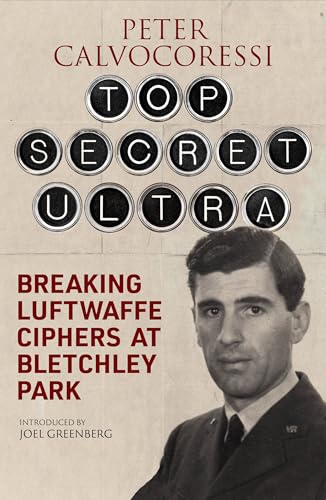
The Interrogator
by Raymond F. Toliver
"The Story of Hans-Joachim Scharff, Master Interrogator of the Luftwaffe"
Popularity
4.88 / 5
* A book's popularity is determined by how it compares to all other books on this website.
Where to buy?
Buy from Amazon* If you buy this book through the link above, we may receive a small commission at no extra cost to you.
The Interrogator by Raymond F. Toliver
Details
War:
World War II
Perspective:
Spying
Military Unit:
Luftwaffe
True Story:
Yes
Biography:
Yes
Region:
Europe
Page Count:
346
Published Date:
1997
ISBN13:
9780764302619
Description
The Interrogator by Raymond F. Toliver – A Book Review
Main Themes and Topics
Raymond F. Toliver's The Interrogator provides a detailed account of Hanns Scharff, the Luftwaffe's master interrogator of World War II. The central theme revolves around Scharff's unique and effective interrogation techniques that relied not on coercion or brutality but on conversation, psychological insight, and the ability to make prisoners feel at ease. This book explores how Scharff's seemingly benign interactions allowed him to extract critical information from captured American fighter pilots, who often only realized the significance of their disclosures after the fact. Another theme is the moral and ethical questions surrounding interrogation methods and their impact on both interrogator and prisoner.
Writing Style and Tone
Raymond F. Toliver employs a narrative style that is both engaging and informative, striking a balance between historical detail and human interest. The tone of the book is investigative, drawing readers into the world of military intelligence during WWII while maintaining a level of objectivity. Toliver's writing is meticulous; he presents facts and anecdotes in a way that highlights the human element behind wartime intelligence operations. The book is written in a way that is accessible to both history enthusiasts and general readers, with a clear exposition that does not assume extensive prior knowledge of the war era.
Brief Summary
The Interrogator recounts the experiences of Hanns Scharff, an intelligence officer for the Luftwaffe during WWII. Known for his non-coercive and conversational style, Scharff managed to gather valuable information from Allied pilots without resorting to physical force. His methods were influenced by psychology and keen observational skills, which allowed him to decode the significance behind seemingly innocuous small talk. The book details Scharff's techniques and their effectiveness, underscoring the psychological complexity of wartime intelligence gathering. Scharff's legacy and methods were so impactful that he was later invited by the United States Air Force to share his approach with American military audiences after the war.
Awards and Recognition
While The Interrogator itself may not have garnered prestigious literary awards, the significance of Hanns Scharff’s methods and Toliver's portrayal have been recognized in military and historical circles. The book's insightful view into WWII intelligence operations has made it a valuable resource for understanding non-violent interrogation techniques.
Criticism
Some readers may find the book's focus on Scharff's techniques as insufficiently critical, potentially glamorizing methods used in a context of warfare and oppression. There may also be critiques regarding the ethical implications of interrogations—even those that are non-coercive. However, Toliver presents the narrative with careful attention, clearly shaping Scharff's approach as one based on intelligence rather than brutality, thus sparking discussion on the effectiveness and morality of interrogation practices.

